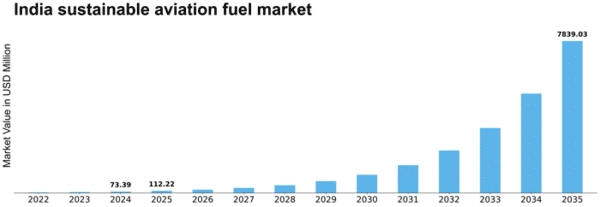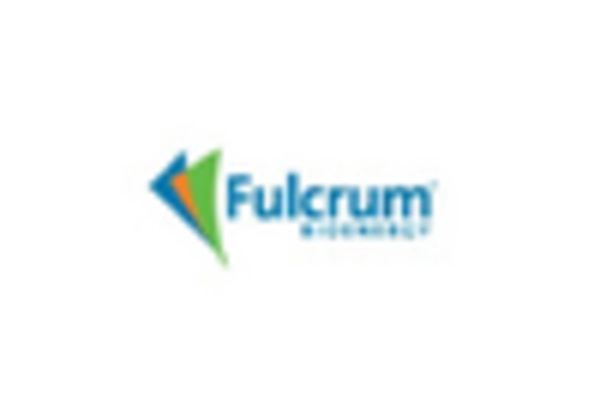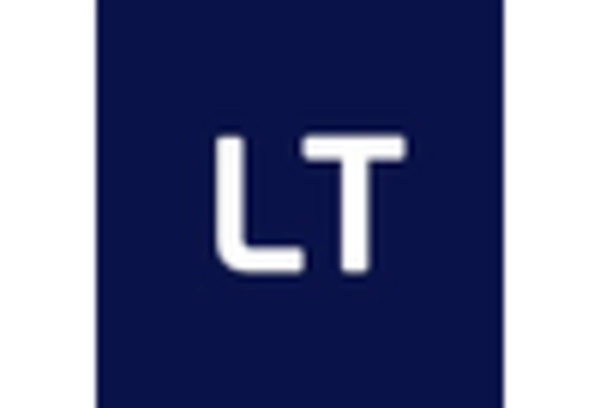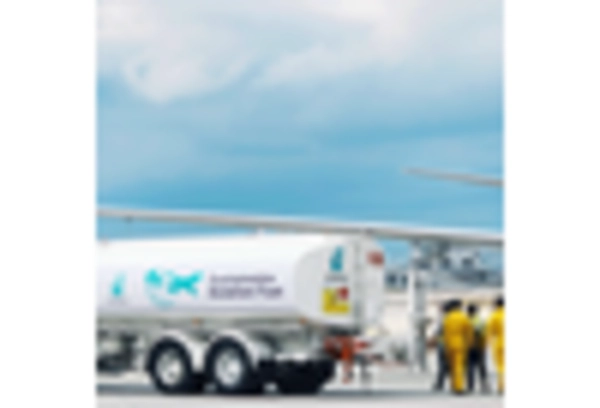India Sustainable Aviation Fuel Size
India Sustainable Aviation fuel Market Growth Projections and Opportunities
The India Sustainable Aviation Fuel (SAF) market is currently undergoing significant transformations driven by various market factors. One crucial factor is the increasing global awareness and commitment to environmental sustainability. With the aviation industry being a notable contributor to carbon emissions, there is a growing emphasis on adopting sustainable alternatives, including SAF. This shift is reflected in India's aviation sector, where the demand for SAF is steadily rising.
Government initiatives and policies play a pivotal role in shaping the market landscape. In India, policymakers have recognized the importance of reducing the carbon footprint of the aviation industry. The government's support through incentives, subsidies, and regulatory frameworks has created a favorable environment for the growth of the SAF market. This includes measures such as tax incentives for SAF production and blending mandates for airlines to incorporate a certain percentage of SAF in their fuel mix.
Investments in research and development (R&D) are instrumental in advancing the production and utilization of sustainable aviation fuels. India has seen increased investments in R&D to enhance the efficiency and scalability of SAF production processes. This includes exploring innovative feedstock sources, such as agricultural residues, algae, and waste materials, to make the production of SAF more economically viable and environmentally friendly.
Collaborations and partnerships between government bodies, industry players, and research institutions contribute to the market's growth. These partnerships facilitate knowledge exchange, technology transfer, and the establishment of a robust supply chain for sustainable aviation fuels. As a result, the market benefits from the combined expertise and resources of various stakeholders, leading to accelerated advancements in SAF technology and market expansion.
Consumer awareness and preferences are shaping the demand for sustainable products, and the aviation industry is no exception. Passengers are increasingly considering the environmental impact of their travel choices. Airlines that adopt sustainable practices, including the use of SAF, can gain a competitive edge in the market. This consumer-driven demand encourages airlines to invest in and adopt sustainable aviation fuels, further propelling the market forward.
Global market trends and dynamics also influence the India SAF market. As the international aviation industry embraces sustainable practices, there is a ripple effect on India's market. Collaboration and alignment with global sustainability goals and standards position India as a responsible player in the international aviation community, fostering market growth and enhancing the country's reputation in the global context.
Challenges such as the high production costs and limited scalability of SAF production remain, but ongoing advancements and investments are addressing these issues. As technology evolves and economies of scale are achieved, the cost-effectiveness of SAF production is expected to improve, making it a more attractive option for airlines in India.
The India Sustainable Aviation Fuel market is experiencing significant growth driven by a confluence of market factors. Government support, R&D investments, collaborations, consumer preferences, and global trends collectively contribute to the expansion of the SAF market. As India continues to prioritize sustainability in its aviation sector, the market is poised for further development, with the potential to become a key player in the global push towards greener aviation solutions.



















Leave a Comment